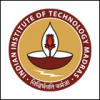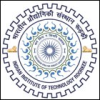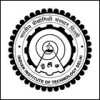How to become a Mathematician
Overview, Courses, Exam, Colleges, Pathways, Salary

Overview
Who is Mathematician ?
A mathematician's primary objective is to use their comprehensive understanding of mathematical concepts and theories, as well as computer technology, to manage massive amounts of data and solve real-world issues. Their work has a wide range of applications in a variety of sectors, including business, engineering, aeronautics, economics, science, and physics. While mathematics is divided into two major categories, theoretical/pure mathematics and applied mathematics, there is much overlap between the two.
While theoretical mathematics is concerned with expanding the field's abstract knowledge via the development of new principles and theories, applied mathematics is concerned with using the field's knowledge to solve practical issues. A mathematician is competent in converting abstract concepts to numerical representations and solving problems with their razor-sharp analytical talents. Aryabhata's achievements as the first Indian mathematician and astronomer continue to be significant to current students.
Typical day at work
What does Mathematician do?
Some of the core responsibilities of a mathematician shall include:
- Construct mathematical simulations and computer models to analyze data and work out practical issues
- Conduct research to advance the field of Mathematics and extend its applicability by developing newer models and principles
- Stay updated on emerging literature in the field of mathematics by attending conferences, liaising with fellow professionals, and monitoring new advancements
- Using mathematical algorithms, design and build encryption systems and aid in the analysis and deciphering processes of the same
- Devise appropriate methods for data collection and analysis
- Carry out complex calculations, identify patterns, perform numerical analyses to draw inferences and conclusions from the collected data
- Present the insights gathered from the data in consumable forms through written reports, presentations, and publications.
- Work on proving and disproving theories using mathematical principles; develop mathematical models by generating testable hypotheses and verifying them through experimentation
Abilities and Aptitude needed
What are the skills, abilities & aptitude needed to become Mathematician?
The mathematical ability of a person is a critical need for success in this work since it involves a thorough comprehension of complex mathematical ideas and principles. Critical thinking abilities combined with the capacity to reason quantitatively make you an expert at accurately interpreting enormous volumes of data. A self-motivated person with a thirst for knowledge and excitement for discovery is an ideal candidate for this position.
Additionally, they must be able to perform well under duress and have strong time management abilities. Logical thinking and advanced problem-solving abilities are required, as is a great eye for detail since this position requires recognising patterns and faults as well as troubleshooting to discover answers. Apart from this, the capacity to transmit complicated information in digestible ways to persons with varying degrees of comprehension is critical. A future mathematician should concentrate on strengthening his computational and research abilities since they will be often needed on the job.
Salary
Salary for Mathematician?
The salary can vary based on factors such as education level, experience, industry, and the field of mathematics they work in. Here's the information in the requested format for a Mathematician in India:
- Minimum Monthly Salary: For entry-level Mathematicians or those working in academic and research institutions, the monthly salary may range from INR 25,000 to INR 40,000, especially at the start of their careers.
- Maximum Monthly Salary: Experienced and highly successful Mathematicians, especially those working in advanced research, data science, or in the financial industry, can earn a maximum monthly salary of INR 1,00,000 to INR 2,00,000 or more.
- Annual Salary: The annual salary of a Mathematician can be from INR 3,00,000 to several lakhs or more, depending on their level of expertise, the complexity of their research or projects, and the demand for their specialized skills.
- Highest Paying Job and Scope: The highest paying job for a Mathematician is often in roles related to data science, actuarial science, financial analysis, or academia in reputed institutions. Mathematicians with expertise in machine learning, artificial intelligence, and cryptography are in high demand. The scope for Mathematicians is promising as they contribute to various industries, research, and academia, solving complex problems and advancing knowledge in mathematics and related fields. Mathematicians use their analytical and problem-solving skills to study and develop mathematical principles, models, and algorithms.
Pathways
How to become an Mathematician?
Entrance Exam
Entrance Exam for Mathematician ?
Although most colleges follow similar elegibility criterias for course admission few colleges conduct entrance exam to check the students mathematical aptitude. Someof them Include:
- Tata Institute of Fundamental Research- TIFR GS Exam
- Andhra University M.Sc Mathematics Entrance Exam
- Acharya Narendra Dev College M.Sc Mathematics Entrance Exam
- Alagappa University M.Sc Mathematics Entrance Exam
- Anna University M.Sc Mathematics Entrance Exam
- Annamalai University M.Sc Mathematics Entrance Exam
- Awadhesh Pratap Singh University M.Sc Mathematics Entrance Exam
- Calicut University M.Sc Mathematics Entrance Exam
- Chhatrapati Shahu Ji Maharaj University M.Sc Mathematics Entrance Exam
- Bangalore University M.Sc Mathematics Entrance Exam
- Bharathiar University M.Sc Mathematics Entrance Exam
- Bharathidasan University M.Sc Mathematics Entrance Exam
Courses
Which course I can pursue?
Best Colleges
Which are the best colleges to attend to become an Mathematician?
Industries
Which Industries are open for Mathematician?
Mathematicians have diverse career opportunities and can find employment in various industries that require strong analytical and problem-solving skills. Some of the industries open for mathematicians include:
- Academia and Research Institutions: Mathematicians often work in universities, colleges, and research institutions, conducting research, teaching, and contributing to advancing mathematical knowledge.
- Data Science and Analytics: Mathematicians play a crucial role in data analysis, statistical modelling, and predictive analytics, helping businesses make data-driven decisions.
- Finance and Banking: Mathematicians work in the finance sector, developing algorithms for risk assessment, financial modelling, and investment strategies.
- Technology and IT: Mathematicians are employed in the technology industry, working on cryptography, cybersecurity, algorithm development, and computer graphics.
- Government and Defense: Mathematicians are involved in defence research, cryptography, national security, and policy analysis.
- Engineering and Manufacturing: Mathematicians contribute to optimization problems, simulation, and modelling in engineering and manufacturing industries.
- Insurance: Mathematicians work in the insurance sector, analyzing actuarial data, calculating risks, and designing insurance products.
- Market Research and Consulting: Mathematicians provide analytical support and insights for market research, consulting, and strategy development.
- Healthcare and Pharmaceuticals: Mathematicians play a role in medical research, drug development, and statistical analysis in healthcare and pharmaceutical industries.
- Energy and Environmental Sciences: Mathematicians are involved in modelling and simulations for energy optimization and environmental research.
- Gaming and Entertainment: Mathematicians work on developing algorithms and simulations for video games and virtual reality applications.
- Aerospace and Defense: Mathematicians contribute to space research, flight trajectory analysis, and simulations in the aerospace industry.
internship
Are there internships available for Mathematician?
Internship opportunities for Mathematicians can be found in various industries and organizations, providing valuable hands-on experience and a chance to apply mathematical principles in real-world settings. Some potential internship options for a Mathematician include:
- Research Institutions: Many research institutes and universities offer internships for mathematicians to assist in ongoing research projects and gain exposure to advanced mathematical concepts.
- Data Science and Analytics Companies: Data analytics firms often offer internships for mathematicians to work on data analysis, statistical modelling, and machine learning projects.
- Financial Institutions: Banks, investment firms, and insurance companies may have internships for mathematicians interested in financial modelling, risk analysis, and quantitative finance.
- Technology Companies: Tech companies and startups often have internship programs for mathematicians to work on algorithm development, computer graphics, and other mathematical applications.
- Government Agencies: Government departments and research organizations may offer cryptography, defence research, and policy analysis internships.
- Engineering and Manufacturing Companies: Internships in engineering firms can involve optimization problems, simulations, and mathematical modelling.
- Market Research and Consulting Firms: Internships in market research and consulting can provide exposure to data analysis and decision-making processes.
- Healthcare and Pharmaceutical Companies: Pharmaceutical firms and healthcare organizations may have internships for mathematicians in medical research and statistical analysis.
- Energy and Environmental Research Organizations: Internships in energy and environmental sciences can involve mathematical modelling and simulations.
- Gaming and Entertainment Industry: Some gaming companies offer internships for mathematicians to work on algorithms and simulations for video games and virtual reality.
Career outlook
What does the future look like for Mathematician?
Employers highly value these individuals due to the variety of their primary competencies, which include complicated problem solving and superior data analytic abilities. A mathematician's training and abilities are transferable to a range of fields, including business, finance, management, communications, medical, engineering and technology. Several of them get positions with scientific or technical consulting organisations. Government employees may be engaged in initiatives involving military and defence, as well as space technology. Additionally, they might work in education as professors and researchers in universities.
While they often operate individually, they may be forced to collaborate with other experts. It is an office job that entails meeting deadlines and travelling to conferences on occasion. Advancement in this field is contingent upon one's degree of competence in specialised areas, which enables one to gain a position as a manager, director, or supervisor. Additionally, a researcher's research output, such as publications in famous journals, might gain their attention and greater remuneration.







